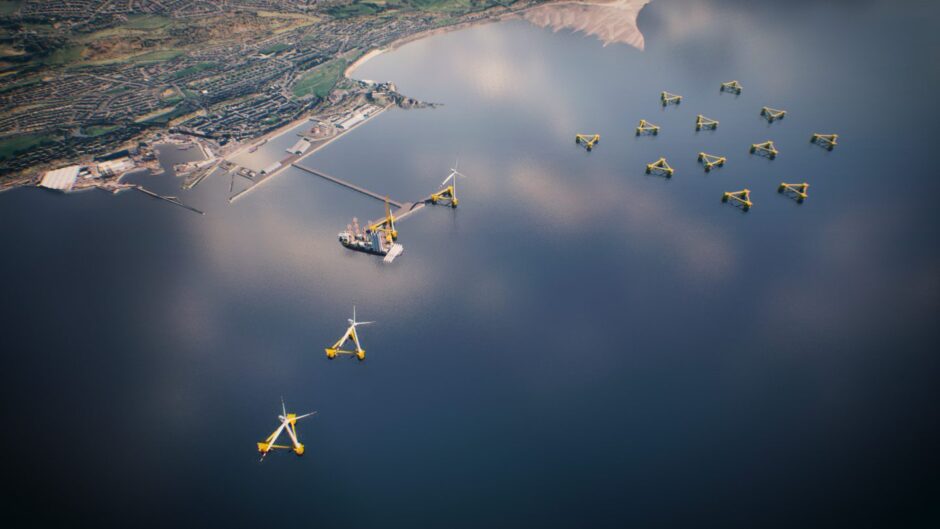
To enable the realisation of the UK’s ambitions for offshore and floating wind energy projects it is crucial that the upgrade of UK port infrastructure is accelerated.
For example, the 2023 report by the Floating Offshore Wind Taskforce identified that up to 11 ports around the UK that will need to be transformed as fast as possible into new industrial hubs to allow for the development of floating offshore wind.
In particular, this report identified that initially, a minimum of three to five ports will be needed in Scotland to support the installation of turbines onto the floating bases, with a further two ports needed to service the Celtic Sea sector. It went on to identify that at least an additional four other UK ports would need to be revitalised to support the manufacturing of the steel and concrete components required for floating foundations.
Accordingly, ports and their infrastructure are a key component in enabling the delivery of offshore wind projects both for fixed and floating projects, and to support the future maintenance and operation of these project.
However, key issues remain that need to be addressed to enable the efficient and accelerated delivery of the required upgrade of UK port infrastructure.
Co-ordinate
The developers of offshore projects need to co-ordinate with UK ports in order to enable port operators to understand their infrastructure requirements, their supply chains and the nature of technology required for their offshore projects.
This is key so to enable UK port operators to identify the scale and nature of port infrastructure upgrades that may be required at individual ports, or groups of ports, so that port operators can put in place the necessary master planning to bring forward the delivery of major port infrastructure upgrades within the timeframe required.
Secure investment
This co-ordination of approach is also vital to enable UK port operators to assess the level of investment that port operators will need to secure in order to consent and then deliver required port infrastructure upgrades.
In particular, this will assist UK port operators to identify their source of investments and the extent to which UK port operators can secure investment support from Government, and specifically, how UK port operators can draw upon the recently announced establishment of the National Wealth Fund which government has stated will include investment of £1.8bn in upgrading ports.
Certainty
Whilst it has been identified in the context of floating wind projects that up to 11 ports around the UK will need be upgraded, with a particular focus on ports in Scotland and on the Celtic Sea, there needs to be collaboration between the offshore wind and port sectors, supported by government, to seek to establish a level of certainty as to where in the UK port infrastructure upgrades need to be prioritised.
Seeking to establish zones of priority for upgraded port infrastructure will greatly assist UK port operators in assessing the level of opportunities for them and most importantly to understand the likely scope of returns for port operators in taking the investment decision to upgrade their Port facilities to support offshore wind projects.
Planning Regime
As has been recently highlighted by the British Ports Association, UK port operators are being undermined in their efforts to upgrade and deliver new port infrastructure by delays in securing decisions on applications for Harbour Orders which deliver the consent for such developments.
At present, backlogs within the bodies responsible for determining such applications means that UK port operators are potentially expecting to have to wait up to four years for decisions on applications to consent port infrastructure works.
Such delays will clearly have a negative impact on investment decisions and the actual delivery of developments which, in turn, will hamper the UK’s ability to bring forward offshore developments, which rely upon upgraded port infrastructure.
It is therefore essential that the government urgently reviews the operation of consenting regime for port developments to ensure that it is resourced to deliver quickly and efficiently the contents required by UK port operators to allow them to fully fulfil their key role in enabling the UK to realise its offshore wind ambitions.
As the backbone of floating and offshore wind, UK ports stand at the helm of creating a greener and more sustainable future, but this can only be achieved once the pressing infrastructural challenges are addressed.
James O’Connor is a partner with Eversheds Sutherland
Recommended for you

 © Supplied by Eversheds Sutherland
© Supplied by Eversheds Sutherland